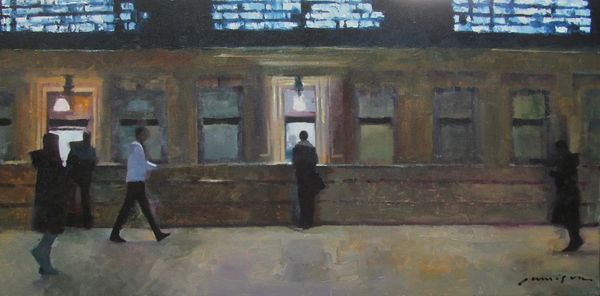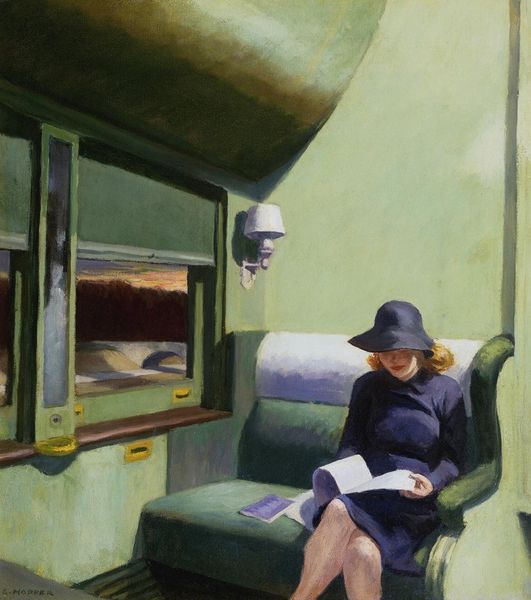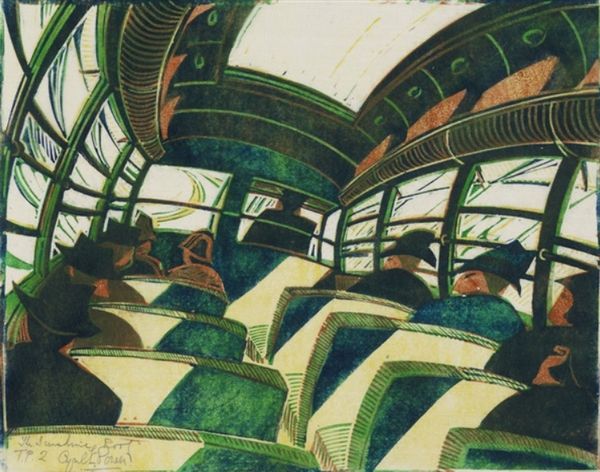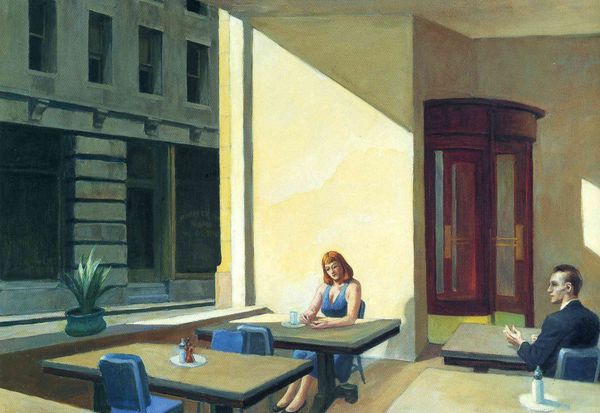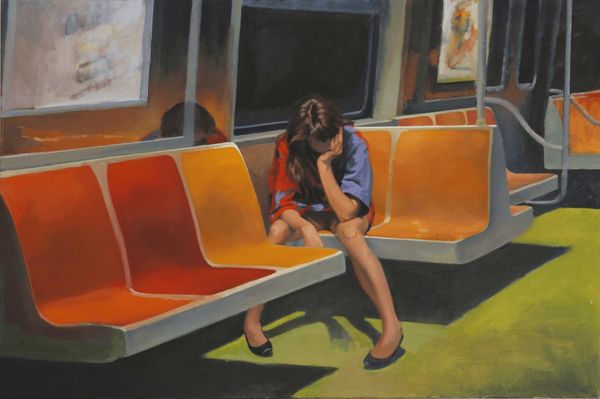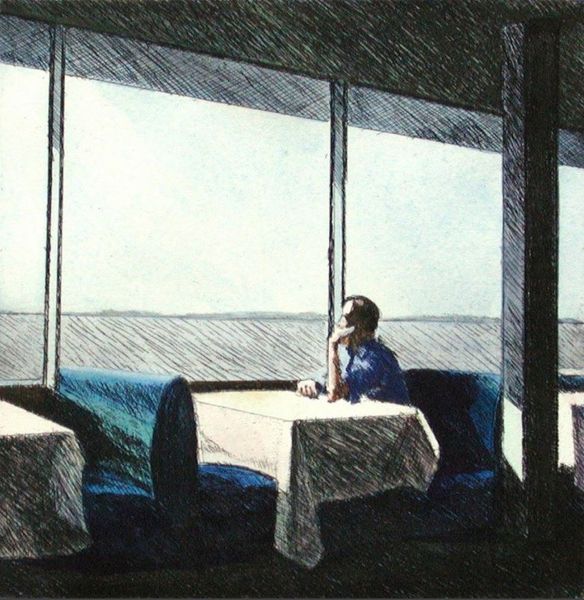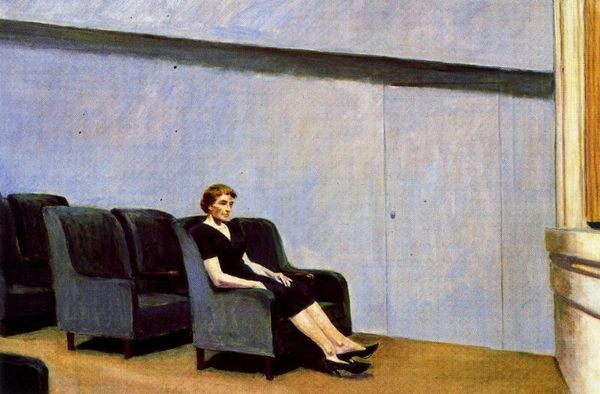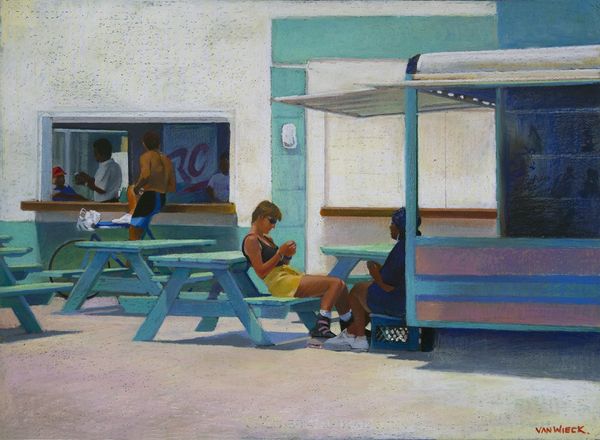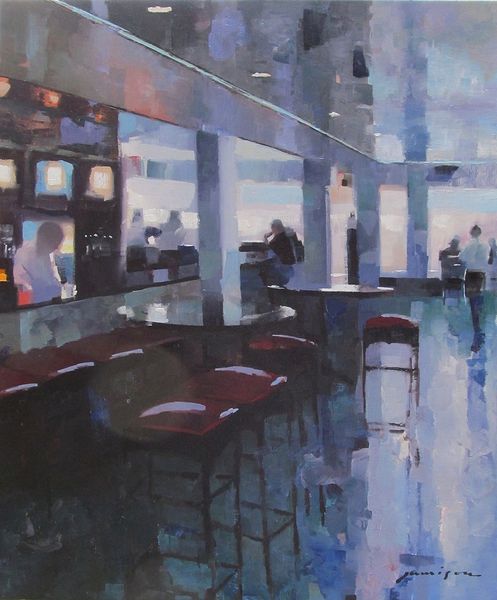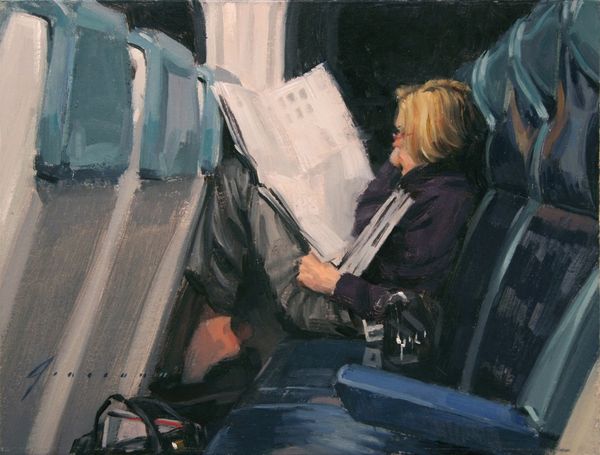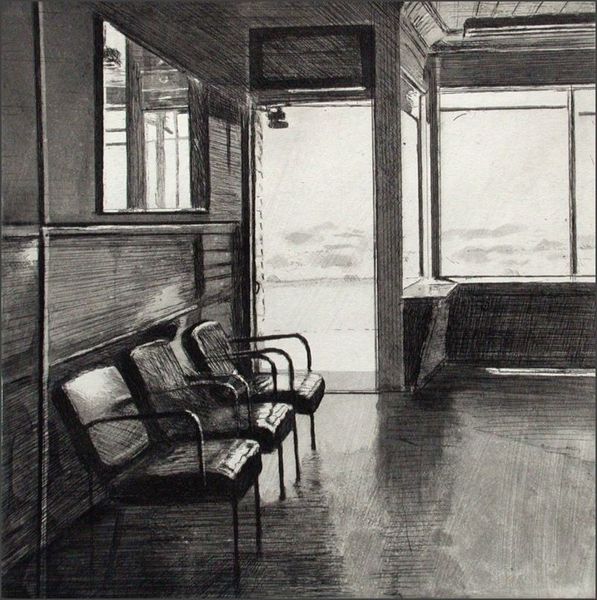
painting, oil-paint
#
portrait
#
painting
#
oil-paint
#
oil painting
#
cityscape
#
genre-painting
#
modernism
#
realism
Dimensions: 127 x 101.6 cm
Copyright: Edward Hopper,Fair Use
Long day at work? This painting might look familiar for some of us. With ‘Chair Car’ (1965), Edward Hopper captures the everyday experience of public transport that plays a key role in modern American life. Born in 1882, Edward Hopper is known as a ‘New Realist’. His works famously explore themes of isolation and alienation. This oil on canvas piece is a great example of modern genre painting – a category which focuses on depictions of everyday life. Genre painting is often associated with peasant scenes from seventeenth-century Holland – here, however, Hopper highlights the realities of the United States in the 1960s. ‘Chair Car’ features a train carriage containing four passengers. Despite their close proximity, there is a sense of disconnection between the four figures. They each appear absorbed in their own separate interior lives… with the exception of the woman on the left side of the canvas, who glances backwards towards the woman in black reading a magazine. Her gaze seems to interrupt the detachment. Here, Hopper has stuck to a limited colour palette which consists mostly of greens and yellows. His composition is structural, with sharp shadows that are slightly haunting. It’s almost spooky… do you feel a quiet sense of tension or anxiety when looking at this piece? The artist has included no clues as to the wider narrative of this scene. Who are these people? Where have they been and where are they going? Even the windows have been left blank. The viewer is left with the impression that these people could be anywhere in the country. This makes the painting less specific and more relatable – it’s almost as if Hopper has painted our own commute! Hopper himself was known to be an independent and perhaps antisocial character. Other artists described him as ‘almost a hermit’! ‘Chair Car’ was sold for over $14 million in 2005, which suggests just how much his stark paintings speak to collectors. ️
Comments
No comments
Be the first to comment and join the conversation on the ultimate creative platform.

